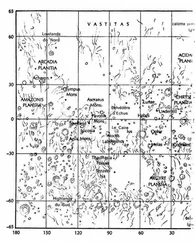Kim Robinson - Blue Mars
Здесь есть возможность читать онлайн «Kim Robinson - Blue Mars» — ознакомительный отрывок электронной книги совершенно бесплатно, а после прочтения отрывка купить полную версию. В некоторых случаях можно слушать аудио, скачать через торрент в формате fb2 и присутствует краткое содержание. Год выпуска: 1996, ISBN: 1996, Издательство: Spectra/Bantam Dell/Random House, Жанр: Космическая фантастика, на английском языке. Описание произведения, (предисловие) а так же отзывы посетителей доступны на портале библиотеки ЛибКат.
- Название:Blue Mars
- Автор:
- Издательство:Spectra/Bantam Dell/Random House
- Жанр:
- Год:1996
- ISBN:0-553-10144-7
- Рейтинг книги:3 / 5. Голосов: 1
-
Избранное:Добавить в избранное
- Отзывы:
-
Ваша оценка:
- 60
- 1
- 2
- 3
- 4
- 5
Blue Mars: краткое содержание, описание и аннотация
Предлагаем к чтению аннотацию, описание, краткое содержание или предисловие (зависит от того, что написал сам автор книги «Blue Mars»). Если вы не нашли необходимую информацию о книге — напишите в комментариях, мы постараемся отыскать её.
Green Mars
The Martian Chronicles
Dune
Piblishers Weekly st
Blue Mars — читать онлайн ознакомительный отрывок
Ниже представлен текст книги, разбитый по страницам. Система сохранения места последней прочитанной страницы, позволяет с удобством читать онлайн бесплатно книгу «Blue Mars», без необходимости каждый раз заново искать на чём Вы остановились. Поставьте закладку, и сможете в любой момент перейти на страницу, на которой закончили чтение.
Интервал:
Закладка:
“You’re too sure,” Marina complained; she had been arguing for Acheron. “You have to keep more of an open mind about things.”
“Yes yes.” Keep an open mind. This was easy for Sax, his mind was a lab that had burned down. Now he stood in the open air. And no one could refute the logic of Underhill, not Marina nor any of the rest of them. Those who objected were afraid, he thought — afraid of the power of the past. They did not want to acknowledge that power over them, they did not want to give themselves fully over to it. But that was what they needed to do. Certainly Michel would have supported the choice of Underhill, had he been still among them. Place was crucial, all their lives had served to show that. And even the people dubious, or skeptical, or afraid — i.e. all of them — had to admit that Underhill was the appropriate place, given what they were trying to do.
So in the end they agreed to meet there.
At this point Underhill was a kind of museum, kept in the state it had been in in 2138, the last year it had been a functioning piste stop. This meant that it did not look exactly as it had in the years of their occupancy, but the older parts were all still there, so the changes since wouldn’t affect their project much, Sax judged. After his arrival with several others he took a walk around to see, and there the old buildings all were: the original four habitats, dropped whole from space; their junk heaps; Nadia’s square of barrel vault chambers, with their domed center; Hiroko’s greenhouse framework, its enclosing bubble gone; Nadia’s trench arcade off to the northwest; Chernobyl; the salt pyramids; and finally the Alchemist’s Quarter, where Sax ended his walk, wandering around in the warren of buildings and pipes, trying to ready himself for the next day’s experience. Trying for an open mind.
Already his memory was seething, as if trying to prove that it needed no help to do its work. Here among these buildings he had first witnessed the transformative power of technology over the blank materiality of nature; they had started with just rocks and gases, really, and from that they had extracted and purified and transformed and recombined and shaped, in so many different ways that no one person could keep good track of them all, nor even imagine their effect. So he had seen but he had not understood: and they had acted perpetually in ignorance of their true powers, and with (perhaps as a result) very little sense of what they were trying for. But there in the Alchemist’s Quarter, he hadn’t been able to see that. He had been so sure that the world made green would be a fine place.
Now here he stood in the open, head free under a blue sky, in the heat of second August, looking around and trying to think, to remember. It was hard to direct the memory; things simply occurred to him. The objects in the old part of town felt distinctly familiar, as in the word’s root meaning “of the family.” Even the individual red stones and boulders around the settlement, and all the bumps and hollows in view, were perfectly familiar, all still in their proper places on the compass flower. Prospects for the experiment seemed very good to Sax; they were in their place, in their context, situated, oriented. At home.
He returned to the square of barrel vaults, where they were going to stay. Some cars had driven in during his walk, and some little excursion trains were parked on the sidings next to the piste. People were arriving. There were Maya and Nadia, hugging Tasha and Andrea, who had arrived together; their voices rang in the air like a Russian opera, like recitative on the edge of bursting into song. Of the hundred and one they had begun with, there were only fourteen of them going to show up: Sax, Ann, Maya, Nadia, Desmond, Ursula, Marina, Vasili, George, Edvard, Roger, Mary, Dmitri, Andrea. Not so many, but it was every one of them still alive and in contact with the world; all the rest were dead, or missing. If Hiroko and the other seven of the First Hundred who had disappeared with her were still alive, they had sent no word. Perhaps they would show up unannounced, as they had at John’s first festival on Olympus. Perhaps not.
So they were fourteen. Thus reduced, Underbill seemed underoccupied; though all of it was theirs to spread out in, they yet crowded together into the south wing of the barrel vaults. Nevertheless the emptiness of the rest of it was palpable. It was as if the place itself was an image of their failing memories, with their lost labs and lost lands and lost companions. Every single one of them was suffering from memory losses and disorders of one sort or another — between them they had experienced almost all the problems in mentation mentioned in the literature, as far as Sax could tell, and a good bit of their conversation was taken up in comparative symptomatology, in the recounting of various terrifying and/or sublime experiences that had afflicted them in the last decade. It made them jocular and somber by turns, as they milled around that evening in the little barrel-vault kitchen in the southwest corner, with its high window looking out onto the floor of the central greenhouse, still under its thick glass dome, in its muted light. They ate a picnic dinner brought in coolers, talking, catching up, then spreading along the south wing, preparing the upstairs bedrooms for an uneasy night. They stayed up as late as they could, talking and talking; but eventually they gave up, in ones and twos, and tried to sleep. Several times that night Sax woke from dreams, and heard people stumbling down to the bathrooms, or whispering conversations in the kitchen, or muttering to themselves in the troubled sleep of the aged. Each time he managed to slip back under again, into a light dream-filled sleep of his own.
Finally morning came. They were up at dawn; in the horizontal light they ate a quick breakfast, fruit and croissants and bread and coffee. Long shadows cast west from every rock and hillock. So familiar.
Then they were ready. There was nothing else to do. There was a kind of collective deep breath — uneasy laughter — an inability to meet the others’ eyes.
Maya, however, was still refusing to take the treatment. She was unswayed by every argument they tried. “I won’t,” she had said over and over the night before. “You’ll need a keeper in any case, in case you go crazy. I’ll do that.”
Sax had thought she would change her mind, that she was just being Maya. Now he stood before her, baffled. “I thought you were haying the worst memory troubles of all.”
“Perhaps.”
“So it would make sense to try this treatment. Michel gave you lots of different drugs for mental trouble.”
“I don’t want to,” she said, looking him in the eye.
He sighed. “I don’t understand you, Maya.”
“I know.”
And she went into the old med clinic in the corner, and took on her role as their keeper for the day. Everything in there was ready, and she called them in one by one, and took up little ultrasound injectors and put them to their necks, and with a little click-hiss administered one part of the drug package, and gave them the pills that contained the rest of it, and then helped them insert the earplugs that were custom-designed for each of them, to broadcast the silent electromagnetic waves. In the kitchen they waited for everyone to finish their preparations, in a nervous silence. When they were all done Maya ushered them to the door and guided them outside. And they were off.
Sax saw and felt an image: bright lights, a feeling of his skull being crushed, choking, gasping, spitting. Chill air and his mother’s voice, like an animal’s yelp, “Oh? Oh? Oh! Oh!” Then lying wet on her chest, cold.
“Oh my.”
The hippocampus was one of several specific brain regions that had been very strongly stimulated by the treatment. This meant that his limbic system, spread under the hippocampus like a net under a walnut, was likewise stimulated, as if the nut were bouncing up and down on a trampoline of nerves, causing the trampoline to resonate or even to jangle. Thus Sax felt the start of what would no doubt be a flood of emotions — registering not any single emotion, he noted, but many at once and at nearly the same intensity, and free of any cause — joy, grief, love, hate, exhilaration, melancholy, hope, fear, generosity, jealousy — many of which of course did not match with their opposite or with most of the others present in him. The result of this overcrowded mix, for Sax at any rate, sitting on a bench outside the barrel vault, breathing hard, was a kind of adrenalized breath-stopping growth in his sensation of significance. A suffusion of meaning through everything — it was heartbreaking, or heart filling — as if oceans of clouds were stuffed in his chest, so that he could scarcely breathe — a kind of nostalgia to the nth power, a fullness, even bliss — pure sublimity — just sitting there, just the fact that they were alive! But all of it with a sharp edge of loss, with regret for lost time, with fear of death, fear of everything, grief for Michel, for John, for all of them really. This was so unlike Sax’s usual calm, steady, one might even say phlegmatic state, that he was almost incapacitated; he could not move well, and for several minutes he bitterly regretted ever initiating any such experiment as this. It was very foolish — idiotically foolhardy — no doubt everyone would hate him forever.
Читать дальшеИнтервал:
Закладка:
Похожие книги на «Blue Mars»
Представляем Вашему вниманию похожие книги на «Blue Mars» списком для выбора. Мы отобрали схожую по названию и смыслу литературу в надежде предоставить читателям больше вариантов отыскать новые, интересные, ещё непрочитанные произведения.
Обсуждение, отзывы о книге «Blue Mars» и просто собственные мнения читателей. Оставьте ваши комментарии, напишите, что Вы думаете о произведении, его смысле или главных героях. Укажите что конкретно понравилось, а что нет, и почему Вы так считаете.












